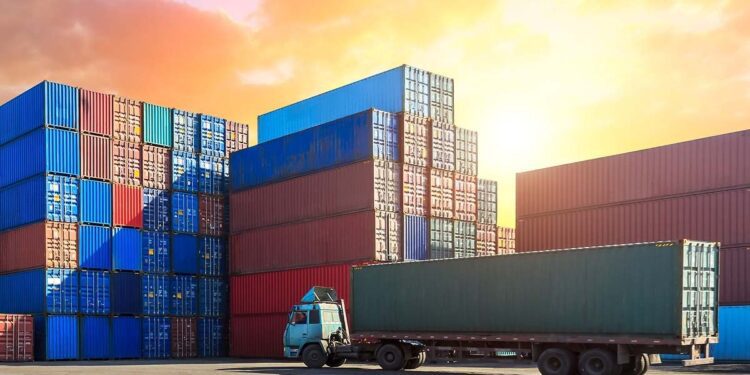Artificial intelligence (AI) is making a milestone in the transformation of the logistics sector, where data monetization is positioned as a promising window towards new business opportunities. However, there is still a long way to go until AI is efficiently implemented.
According to data provided by the UNO Logística business association, 23% of logistics and transport companies already use big data, placing the sector third in the use of this technology for data analysis. Despite this progress, only 9.6% have integrated artificial intelligence into their processes, a modest percentage that reflects the need for technology maturation to achieve a clear return on investment and effective practical applications. “The sector has not yet reached full maturity in the use of this technology, which represents a great opportunity for improvement,” says Fernando Pareja of T-Systems Iberia.
Francisco Aranda, president of UNO Logística, comments, “We are transforming our operations to be more efficient and environmentally friendly. Using big data and advanced analysis techniques is now more crucial than ever to optimize costs and resources, ensuring success in strategic decision-making.”
The integration of robotic systems in 5.2% of companies highlights a trend towards automation to improve competitiveness and safety in the warehouse, in addition to reducing costs and operational times. Nearly 90% of companies have implemented cybersecurity measures, reflecting a growing focus on protecting critical infrastructure from digital threats.
With 14.8% of companies having ICT specialists in their staff, the industry not only seeks to advance technologically but also to ensure that its human capital is at the forefront of innovation. Large companies, representing 38% in the use of big data and 66.2% in employing ICT specialists, are paving the way for digitalization for smaller companies, creating a domino effect throughout the industry.
It is important to note That progress is happening faster than the industry can absorb “the lack of a solid strategy shows that companies have insufficient trained personnel and are ill-prepared to achieve these ambitions.” Christian Pedersen, IFS’s chief product officer, who conducted the study: Industrial AI: The New Frontier for Productivity, Innovation, and Competitiveness.
The Role of AI
Artificial intelligence is a set of technologies that allow machines to simulate human cognitive processes, such as learning and decision-making. In logistics, its relevance lies in the ability to transform data into predictive and optimized actions, improving efficiency, reducing costs, and increasing customer satisfaction through automated and precise processes.
“The first step is to deeply understand the company’s processes,” says Pablo Yuste, an expert in AI. In logistics, this means identifying how data, operational logic, and actions are interconnected to effectively manage resources and the supply chain. From here, AI implementation can be planned to automate and optimize these processes, ensuring a more efficient workflow with fewer errors.
A barrier that the technological sector sees to the majority and more efficient implementation of artificial intelligence is the way to incorporate it into production processes. “In my opinion, a more appropriate approach would be to change the order of action: instead of applying AI to enhance the human worker operating an existing process, we should first inventory all processes and then determine which can be autonomously carried out by AI and which require human assistance. Something that is reinforced by the IFS study, which states that the lack of a solid strategy compromises AI expectations in 48% of organizations.
The main current applications include route optimization, automated inventory management, and improvement in communications with customers, suppliers, and employees.
AI in warehouse management is revolutionizing the way inventories are tracked and managed. Intelligent inventory management systems can predict demand levels, optimize storage space, and automate replenishment orders. “This not only reduces excess inventory and stockouts but also facilitates a much more efficient inventory turnover.”
On the other hand, route optimization through AI allows for real-time delivery route calculations, taking into account variables such as traffic, weather conditions, preferred delivery times, and urgency. “This not only reduces travel times and fuel consumption but also increases the number of successful deliveries.”
Also, AI has revolutionized communications on multiple fronts. The ability to reason about messages in text, image, or audio form allows for more personalized and uninterrupted service to any business-related agent. “The progress is such that we are already seeing the first AI models that are capable of understanding the feelings of interlocutors by examining the tone in which they speak the words.” Yuste is excited. In this line, CTT Express has a technology capable of accurately interpreting customer-provided addresses to optimize delivery efficiency by 91%. “This technology consists of georeferencing the exact delivery points through natural language with 98% accuracy,” explains Talía Vázquez, Deputy Director of Business Processes and Quality at CTT Express.
Artificial intelligence also opens the door for logistics companies to consider new business lines related to selling data obtained through technology. “It not only leads to process and cost improvement but also to the possibility of creating new ways of doing things, new processes, and new options for generating business for logistics companies by monetizing data and information,” anticipated by T-Systems.
“The future innovation in AI that I see with the most potential is robotics. It includes the development of fully autonomous delivery systems, such as drones and driverless vehicles, as well as warehouse operator robots.” Yuste concludes.


